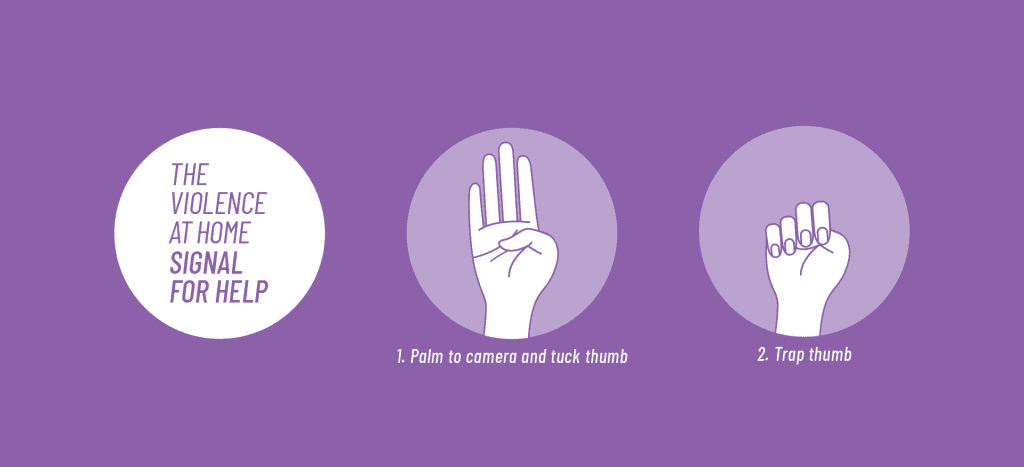COVID-19 has forced many families in to isolation, which has been challenging for some and dangerous for those living with an abusive partner.

The pandemic has added another level of complexity to people trying to flee family violence. Staff working in emergency shelters said victims of domestic abuse have had to face an agonizing decision.
“What’s more dangerous right now?” asked Kathy Collins, executive director of WINGS, a second-stage shelter in Edmonton, Alta.
“Safety is the number one value at WINGS and it took on a whole new meaning with the pandemic. Now we had a whole new layer and that was keeping these people safe from a deadly virus, while at the same time, ensuring their safety from external forces and domestic violence.”
Collins called it the “paradox of the pandemic.”
WINGS stands for Women in Need Growing Stronger. The non-profit group operates nearly 50 suites for women with children who have experienced family violence.
The main priority for WINGS is safety and connecting women with community supports.
The past 19 months have forced staff to pivot and “be nimble,” said Collins, in order to provide that programming to women and their children.

One woman spoke to Global News about her experience and said leaving her home with her young daughter was “very difficult.”
She said her relationship with her ex-partner started to take a turn in March 2020, when she was pregnant with their child.
“That’s when things started going downhill. He became really abusive — verbally and physically.
“It was very terrifying, especially at the end of my pregnancy when things started closing down.”
Global News is not identifying the woman or where she is located. She remains at a shelter but said she doesn’t consider herself a victim.
“I’m surviving. This is what surviving feels like and you have to go through those ugly parts sometimes.”
The woman said seeking refuge at a shelter with her little girl gave her time to take “a breath” and plan for their future.
She said she realized her abuser had tried to keep her isolated to prevent her from leaving.
“Living in an abusive situation, your abuser tells you, ‘You have no options.
“‘Nobody is going to help you. You’ve made mistakes. You should stay home. This is where you belong, you’re not going to make it out.'”
She did have options and she wants anyone else in the same situation to know they can get help too.
“Look. Call numbers. Do whatever you need to do.”
The Canadian Women’s Foundation tracks gender-based violence and said around the globe it increased in severity and frequency during the pandemic.
“Spikes in violence are unfortunately too common in times of crisis and disaster,” said Andrea Gunraj, vice president of public engagement at the Canadian Women’s Foundation.
“As a pre-pandemic example in Canada, we can look to the domestic violence spike during the Fort McMurray wildfires in 2016.”

“In the pandemic, crisis lines have seen a 20-30 per cent increase in calls related to gender-based violence. Some organizations have seen even higher demand. One of our grantees in Alberta, the Calgary Immigrant Women’s Association, saw calls rise by 50 per cent.”
Gunraj also pointed to an increase in domestic disturbance calls to police in 2020.
“These are all red flags of increased intimate partner violence.”
Abusers have also been using the pandemic as another way to control their partners — telling them shelters are closed — which is not true.
November is Domestic Violence Awareness month in Canada and Gunraj said every Canadian has a role to play.
Whether it’s donating to a shelter or service that helps families escape violence or learning how to respond to someone who needs support.
A hand gesture, known as the Signal for Help, could save someone. Watch for it during a video call if someone is at home and not able to talk about their current situation.
Collins urged anyone in immediate danger to call 911.
In Edmonton, calling 211 will link you with support options.
If you suspect someone you know is experiencing family violence, Collins said offer any support you can.
Tell-tale signs are injuries, but Collins said often a victim and their children have had their health neglected because of isolation.
“Quite often they don’t want to talk about it, so just let them know that you’re there for them.
“Because it can be so dangerous, quite often you have survivors who deny that anything is going on.”
The mother Global News spoke with said feeling safe has allowed her to focus on her daughter and called it “an amazing feeling.”
“She’s doing great,” she said. “She’s everything I didn’t know I needed.”



Comments